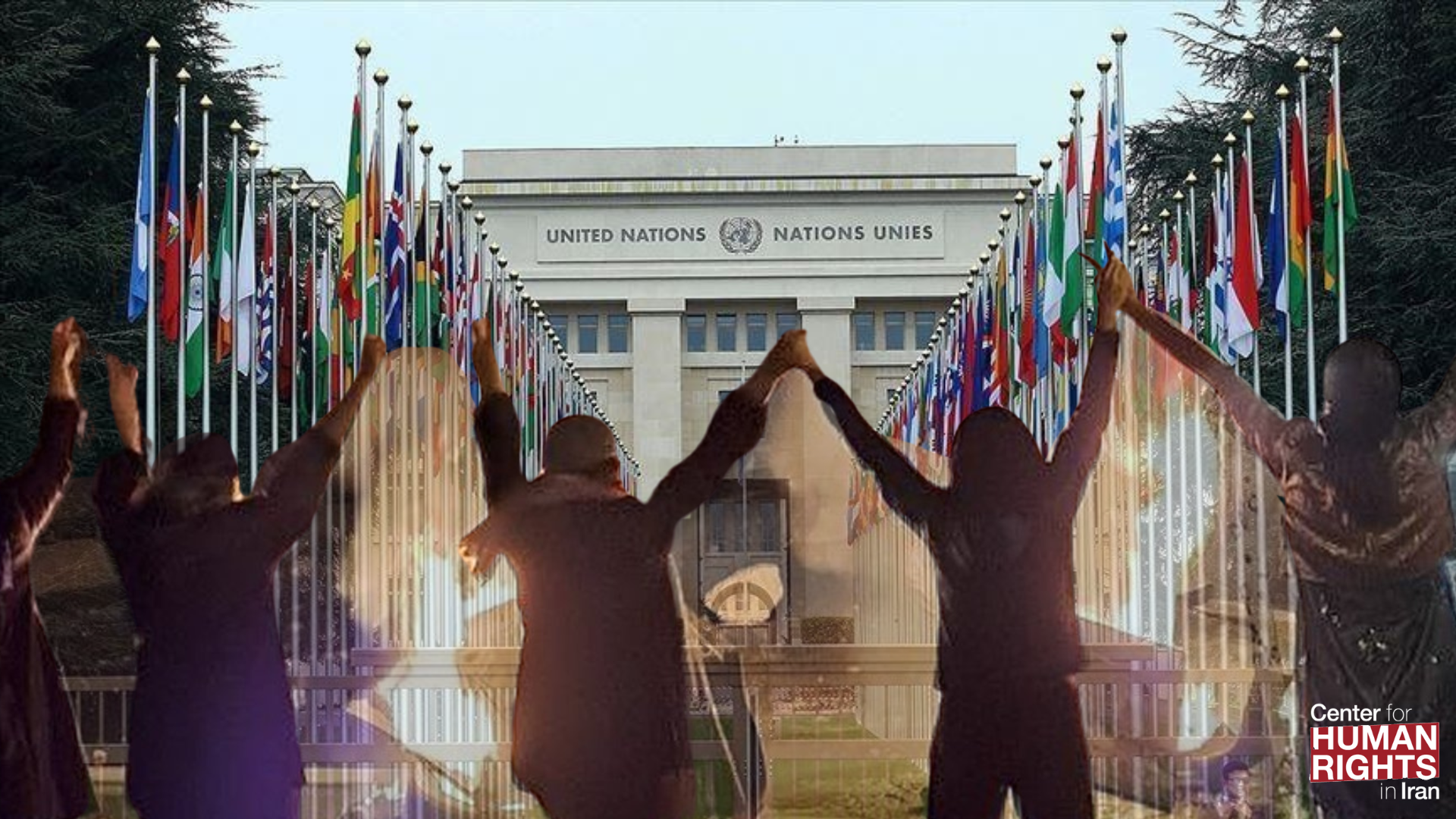Landmark Resolution: UN Human Rights Council Expands Fact-Finding Mission on Iran

All of Iran’s Ongoing Human Rights Crimes To Be Investigated
24 States Vote to Expand Accountability for Iran’s Atrocities
April 3, 2025 – In a significant step toward accountability, the United Nations Human Rights Council (UNHRC) has adopted a landmark resolution extending and expanding the mandate of the UN Independent International Fact-Finding Mission on Iran (FFMI). This resolution broadens the mission’s scope to investigate and document all serious human rights violations in Iran.
Previously, the FFMI, which was established in November 2022, was limited to investigating the human rights violations committed by the Islamic Republic during the nationwide 2022 Woman, Life, Freedom protests. With this resolution, the Mission can now investigate all ongoing serious human rights violations and collect evidence for future legal action, ensuring that international scrutiny extends to address persistent patterns of abuse.
“This resolution is a resounding warning to Iran’s authorities: the era of unchecked brutality is coming to an end,” said Hadi Ghaemi, executive director of the Center for Human Rights in Iran (CHRI).
“Every branch of Iran’s government—from low-level officers to the highest ranks—must know that their crimes are being documented and that justice will catch up with them,” said Ghaemi.
“The world will not look away as they continue to torture, rape, and execute people for daring to demand their basic rights,” Ghaemi added.
The resolution, which passed with 24 votes in favor, 8 against, and 15 abstentions, also renews the mandate of the Special Rapporteur on the human rights situation in Iran for another year.
The FFMI’s new mandate will continue “to thoroughly and independently monitor and investigate allegations of recent and ongoing serious human rights violations in the Islamic Republic of Iran …[and] to collect, consolidate, analyse, record and preserve evidence of such violations … and ensure that all evidence is accessible for use in any independent legal proceedings.”
A Positive Step for Justice and Accountability
The resolution underscores the urgent need to combat impunity and to hold perpetrators of human rights violations accountable.
In its March 2024 and March 2025 reports, the FFMI’s previous mandate documented widespread and systematic abuses, including unlawful killings, torture, rape, enforced disappearances, and persecution of women and ethnic and religious minorities during the Woman, Life, Freedom protests. The FFMI found that many of these violations amounted to crimes against humanity and noted that Iran has not only failed to address past crimes but continues to engage in systematic human rights abuses.
“For years, the Iranian government has worked to silence independent investigations and conceal its crimes, said Ghaemi. “But now the evidence is being documented, and those who orchestrate killings, torture, and sexual violence in Iran will be held accountable.”
The Center for Human Rights in Iran (CHRI) urges Member States worldwide to support the growing international movement to hold Iran accountable for its crimes and to pursue prosecution of those responsible for human rights atrocities in Iran through national courts under the principle of universal jurisdiction.
Key Provisions of the Resolution:
- Expanded Mandate: The FFMI will now investigate recent and ongoing serious human rights violations beyond those linked to the 2022 protests.
- Evidence Preservation: The FFMI will continue collecting, consolidating, analyzing, and preserving evidence for future legal proceedings, including potential prosecutions under universal jurisdiction.
- Continued International Scrutiny: The Special Rapporteur’s mandate has been extended to monitor Iran’s human rights situation, with findings to be presented at the UNHRC and the UN General Assembly.
- Call for Cooperation: The resolution urges Iranian authorities to grant full and unrestricted access to independent investigators and to cease reprisals against survivors, victims’ families, and human rights defenders.
Vote Breakdown:
Today’s resolution was adopted with 24 countries in favor: Benin, Chile, Colombia, Costa Rica, Cyprus, Dominican Republic, Japan, Malawi, Marshall Islands, Mexico, Morocco, and the Republic of Korea. Meanwhile, 8 voted against: Algeria, Bolivia, Burundi, China, Cuba, Indonesia, Sudan, Vietnam Additionally, 15 countries abstained: Bangladesh, Brazil, Côte d’Ivoire, Democratic Republic of the Congo, Ethiopia, Gambia, Georgia, Ghana, Kenya, Kuwait, Kyrgyzstan, Maldives, Qatar, South Africa, Thailand






